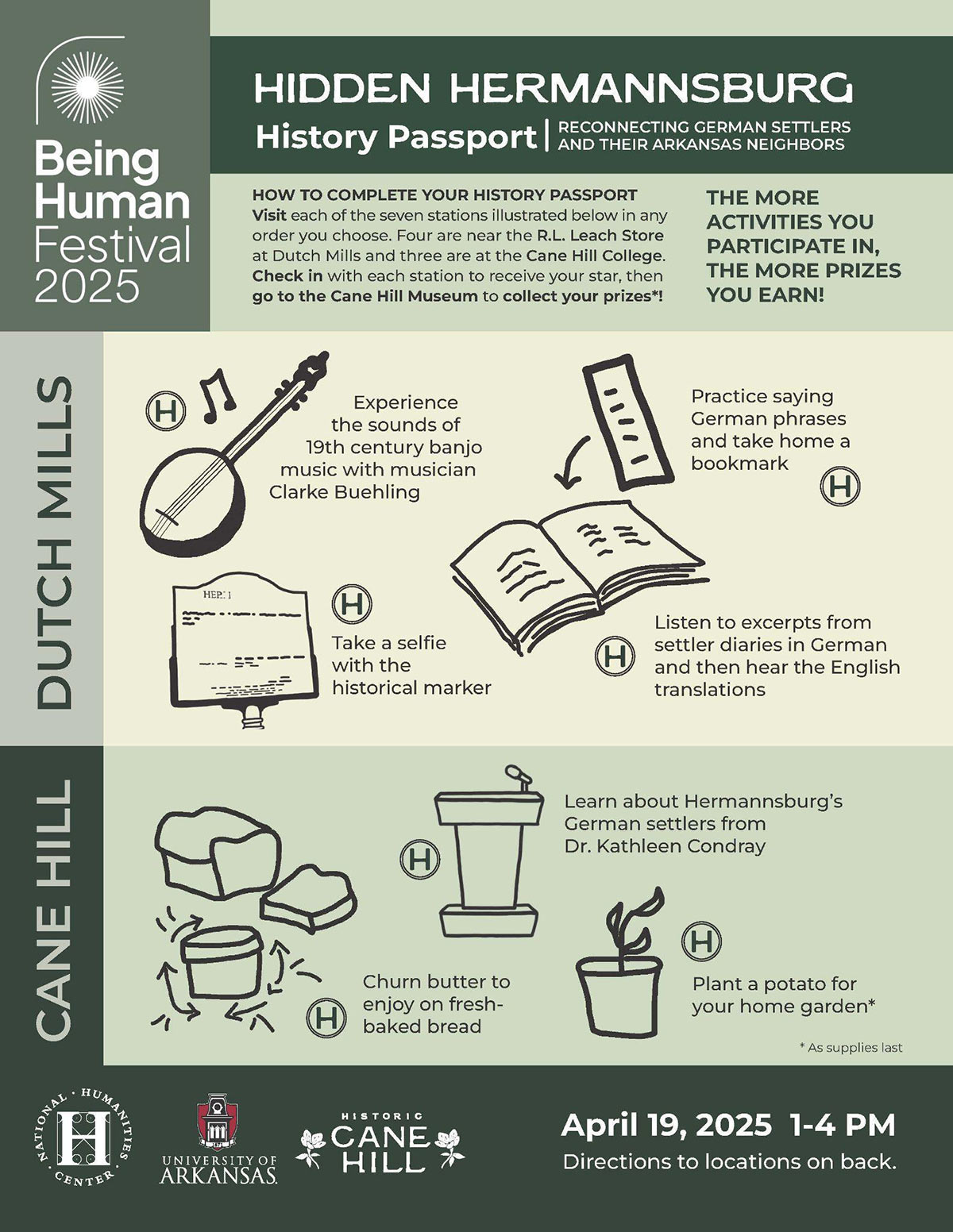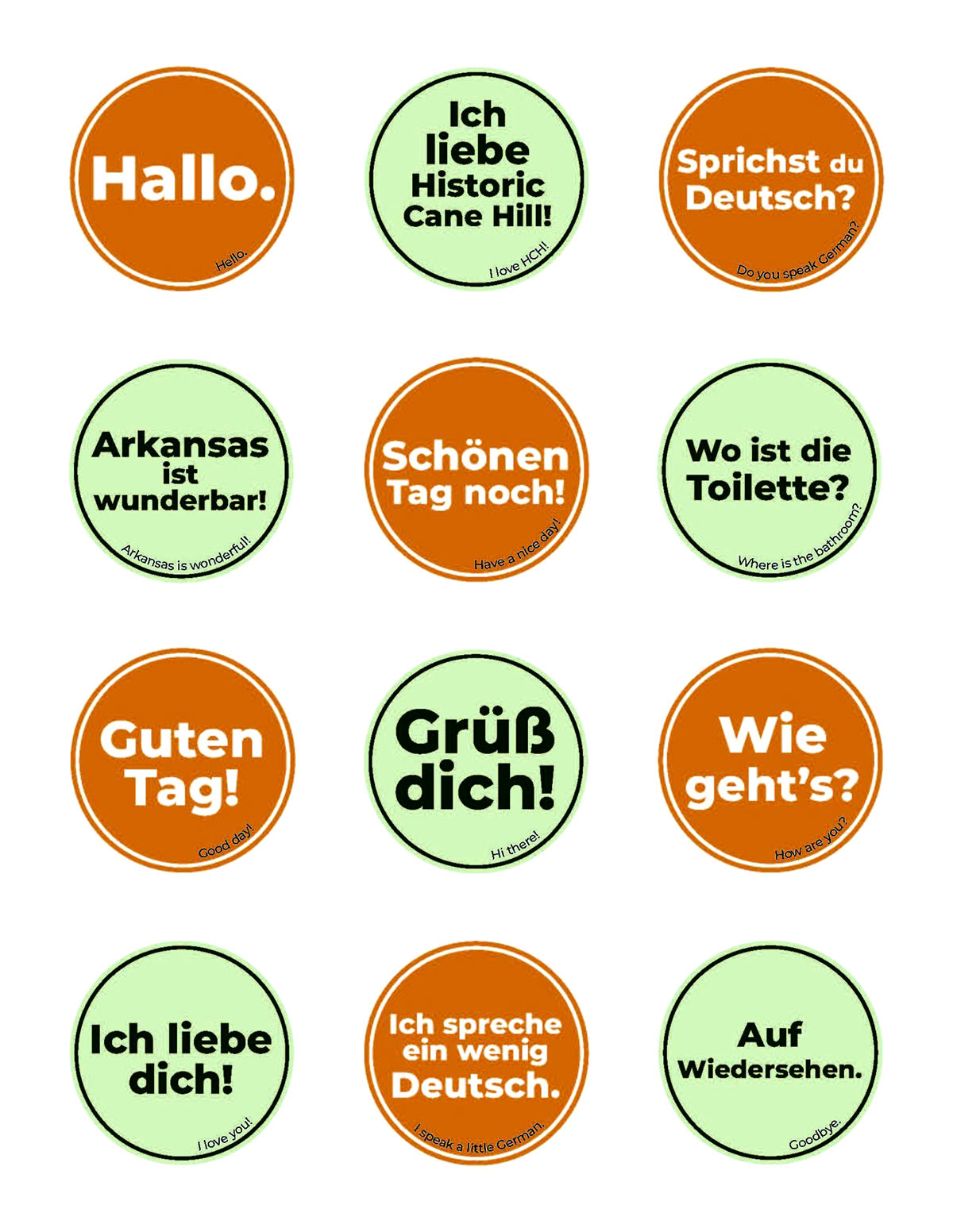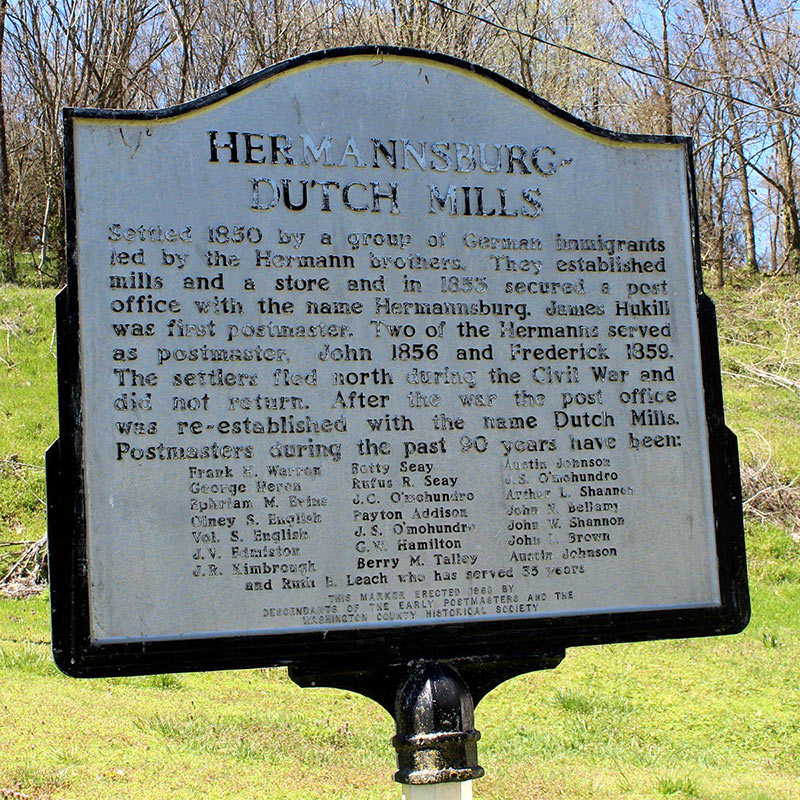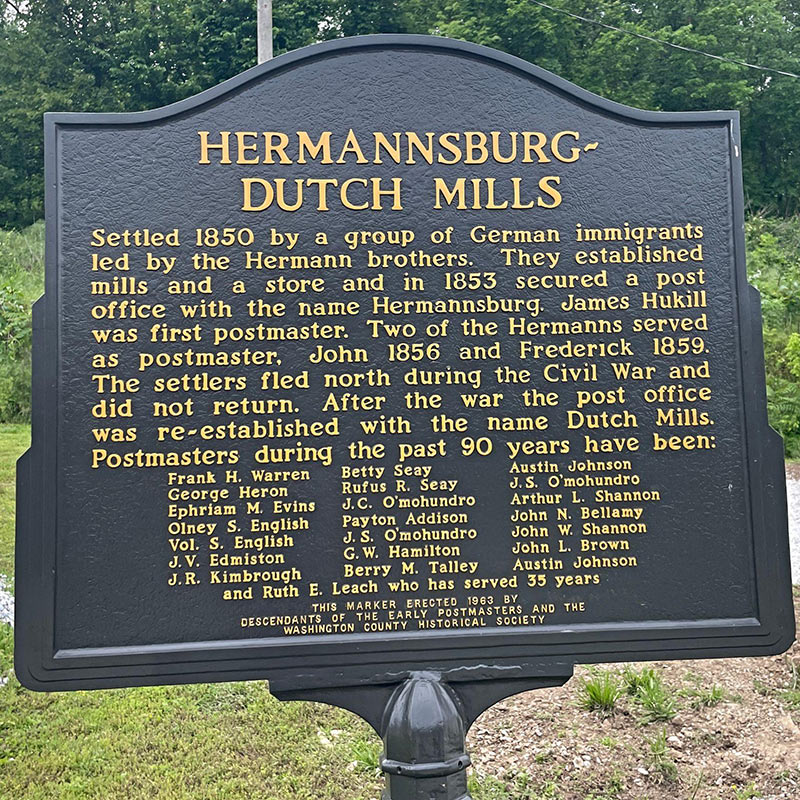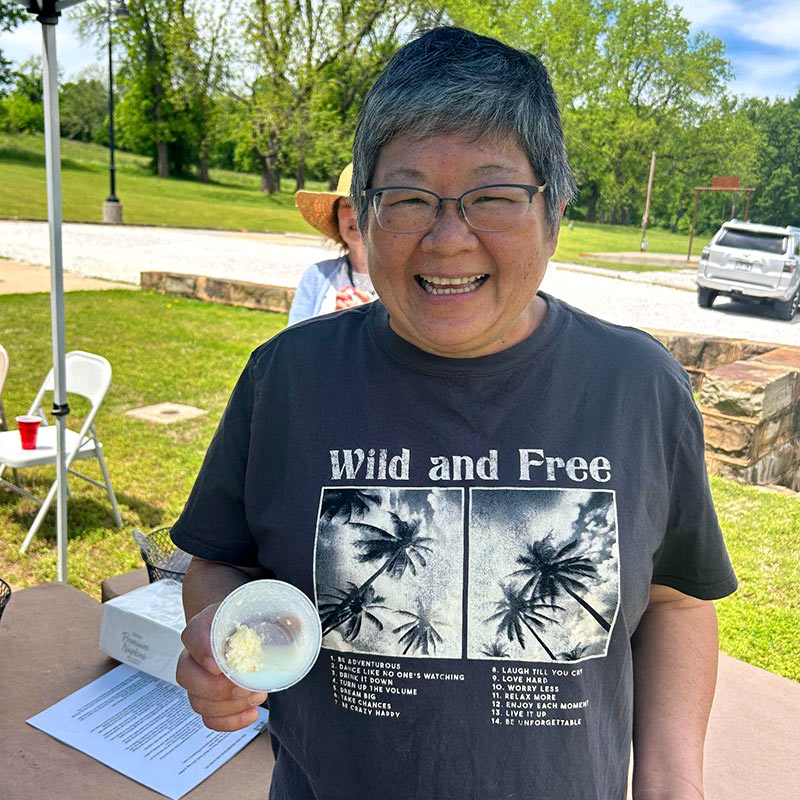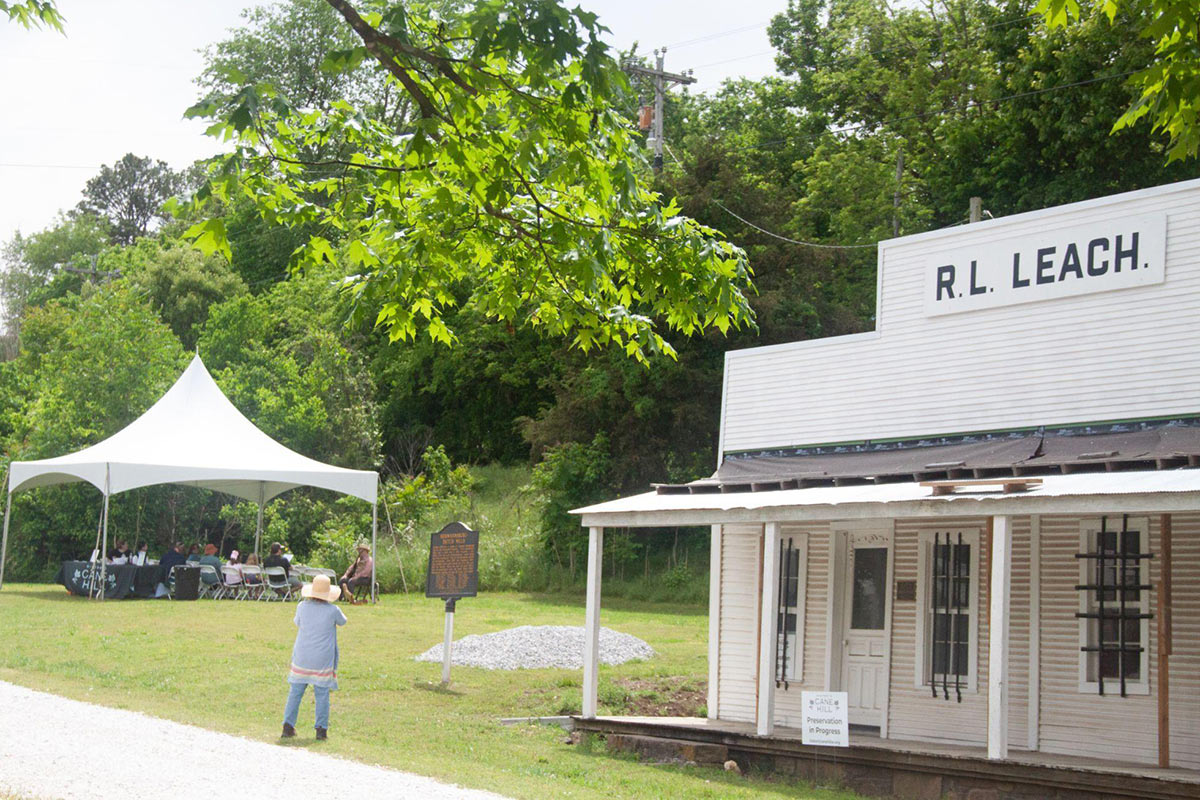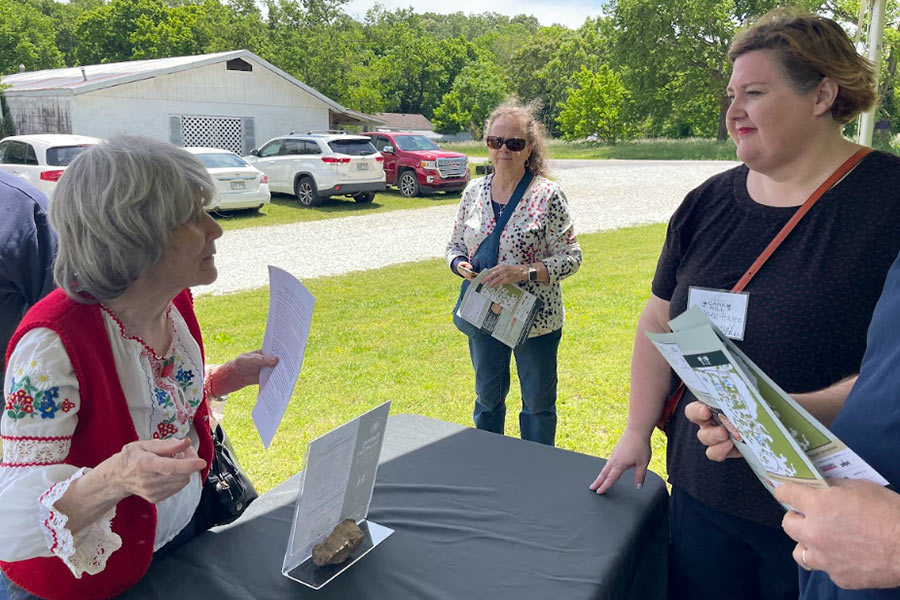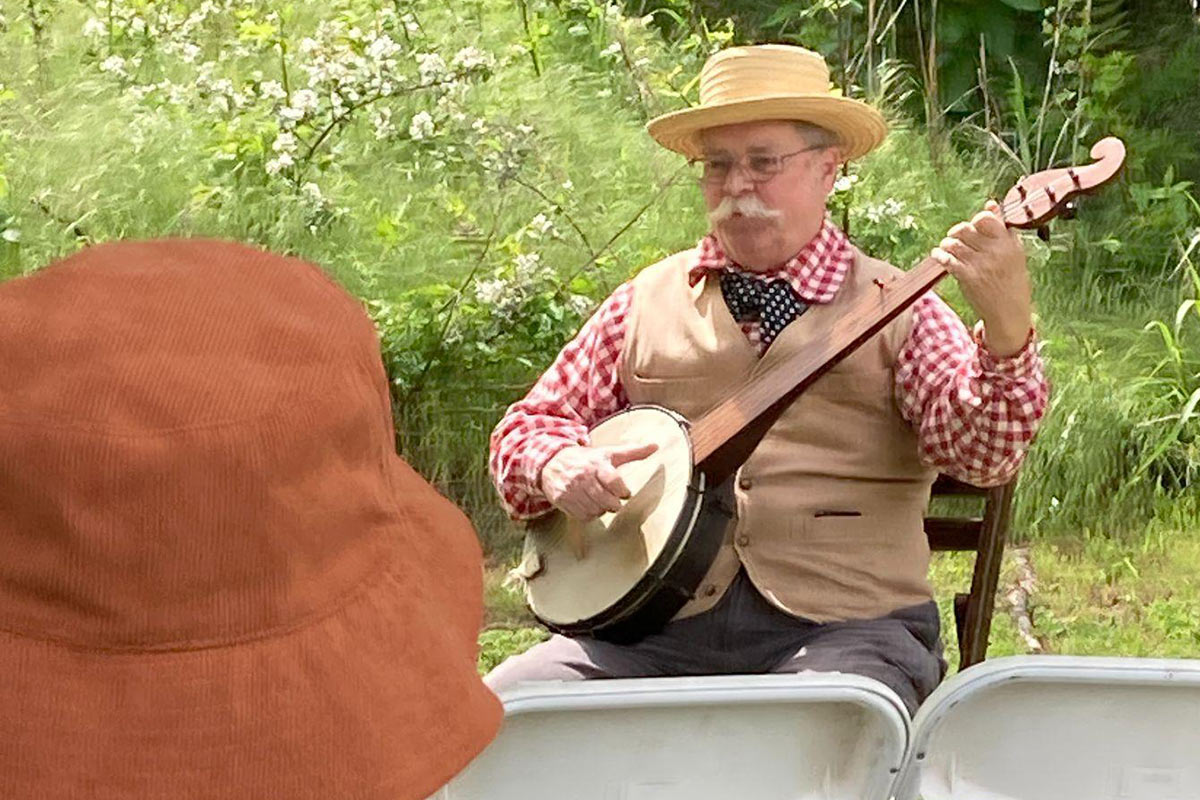page
History Passport: Reconnecting German Settlers and their Arkansas Neighbors
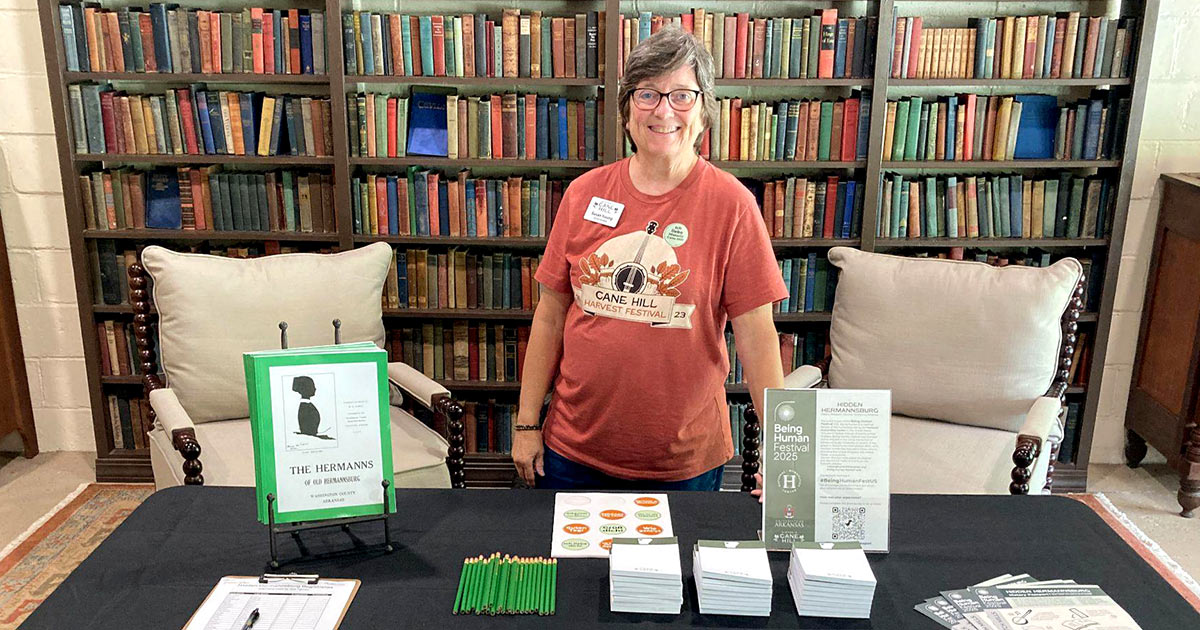
Date: April 19, 2025
Organizers: Historic Cane Hill and the University of Arkansas at Fayetteville
Being Human Festival (US)

For this event, organizers designed a number of interactive activities that led participants through the history of Cane Hill. In addition to completing individual History Passports that guided them through the history, culture, and heritage of this community, participants were also given specially designed German language bookmarks and stickers. These interactive materials encouraged participants to fully immerse themselves in the “hidden world” of Hermannsburg, leading them to a deeper understanding of, and an active relationship with, the settlement’s history.
Attendees also experienced the rich legacy of German settlers in northwest Arkansas through nineteenth-century banjo music, readings from family diaries, language learning activities, and hands-on activities such as potato-planting and butter-making.
As a part of this Festival event, organizers were also able to sponsor the restoration of a weather-worn historical marker, which ensures that all visitors to Dutch Mills will be informed about this history for years to come. This Being Human Festival event also made it possible for Hermannsburg to be added to the Migrant Voices project, a digital archive that maps “unheard migrant voices in Arkansas” (sponsored by the University of Arkansas).
“In addition to learning about the German history of the area, many local residents visited the [Historic Cane Hill] campus for the first time and learned about the organization’s many programs, so the impact of this grant will extend far into the future as area citizens continue to take part in public humanities events.”
—Kathleen Condray, Festival event organizer
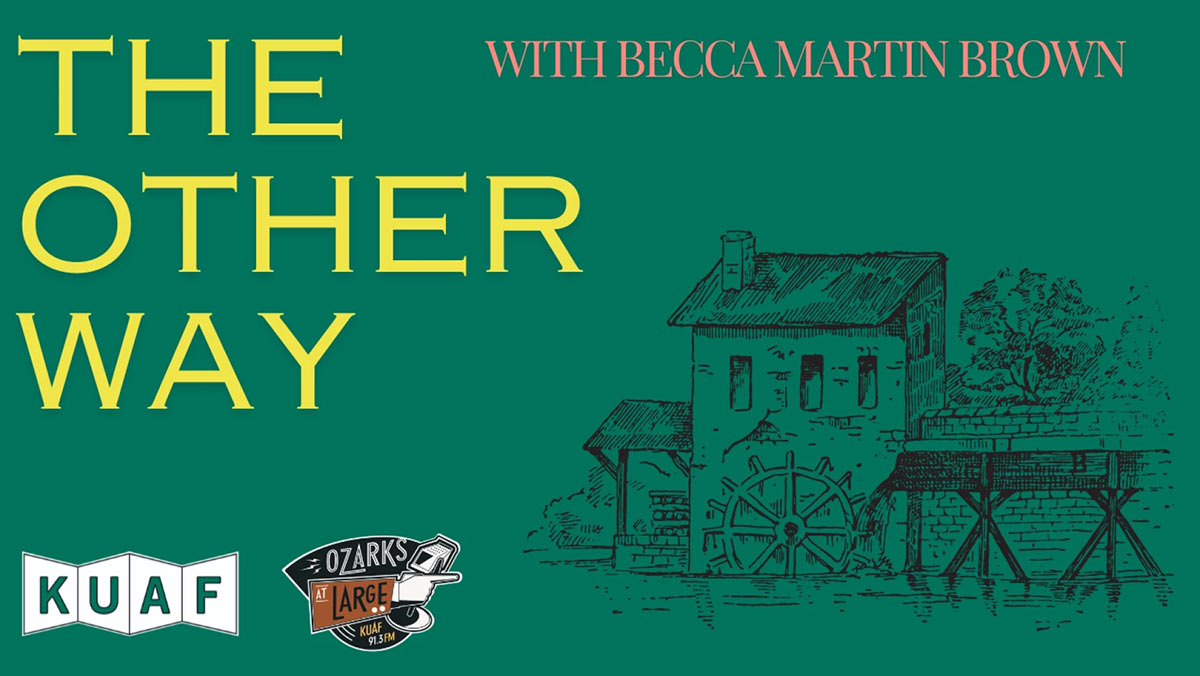 Click to listen to a clip from local public radio station KUAF, which included a segment about the event on Ozarks at Large’s radio show The Other Way, where Kathleen Condray and Amanda Cothren discussed their participation in the festival and shed light on the rich history of this little known migrant settlement.
Click to listen to a clip from local public radio station KUAF, which included a segment about the event on Ozarks at Large’s radio show The Other Way, where Kathleen Condray and Amanda Cothren discussed their participation in the festival and shed light on the rich history of this little known migrant settlement.
